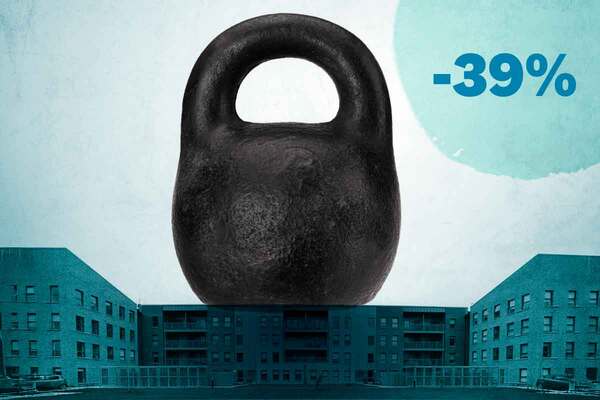The editor’s rundown: TSMs, tighter headroom, and renewed political will
Tenant satisfaction measures data lands in England, a funding boost for Scottish social landlords, and an exclusive first look at financial performance across the UK – Social Housing editor Sarah Williams rounds up the key stories from the past month

The end of the calendar year may be almost upon us, but 2024 is doing anything but fizzle out.
Indeed, in the days following the last instalment in this series, readers of the financial market tea leaves were weighing up the twin impact of a Bank of England rate cut on 7 November and a decisive election victory for Donald Trump in the US election.
The result was a ‘mixed picture’ for the sector’s borrowers, financial experts told Social Housing at the time, with differing effects at the short and long end of the curve.
Two weeks later, Consumer Price Index data for October showed inflation above the central bank’s two per cent target, at 2.3 per cent. Looking ahead, analysis from the Office for Budget Responsibility had already suggested that policies set out at the Autumn Budget would push inflation up slightly in 2025 to reach 2.6 per cent at its peak – meaning that the timetable for further cuts to interest rates is expected to be more gradual than many had hoped.
Looking specifically at our own sector’s financial health, a first look at the full 2024 audited accounts for UK housing providers does not make for cheery reading. Exclusive analysis by Social Housing finds that combined pre-tax surplus for the largest providers by category in England, Northern Ireland, Scotland and Wales fell 39 per cent in the last full year, as financial and operating pressures continued to bite. Chloe Stothart reports.
Our analysis comes as the Scottish Housing Regulator warned that tenants and social landlords continue to face a “difficult economic context with continued volatility and uncertainty”, as it set out its risk assessment for the coming year.
In England, the latest quarterly survey data from the Regulator of Social Housing (RSH) has found that 12-month forecasts for English housing providers’ cash interest cover are at a new record low of just 70 per cent. This marks a fall from 77 per cent at the end of the previous quarter, with continued significant investment into improving existing homes a key part of the picture.
As headroom tightens, “effective financial governance and cash flow management is essential to enable landlords to avoid difficulties”, the RSH said.
In the (hopefully limited) instances where this may be lacking, it will therefore come as a relief among sector stakeholders to hear from the same regulator that rescue mergers are not “closed off” as an option, despite the increased challenges of the day and the increased size of organisations more broadly. Speaking at the Social Housing Annual Conference on 20 November, Will Perry, director of strategy at the RSH, said the regulator is “confident” from speaking to landlords that “there is still appetite to engage with providers who are experiencing some difficulties”.
Political will
Further comfort may be drawn from words of strong support for the sector from the deputy prime minister and housing secretary. In a keynote address at our conference, marking her first speech to the sector, Angela Rayner said that councils, housing associations and investors had been left “picking up the pieces of years of failure”, but emphasised that there is hope. “By working together in a new spirit of partnership, we can and will unleash a new generation of social housing,” she said.
On the day the government unveiled incoming changes to the Right to Buy intended to reduce the number of homes lost from the sector, Ms Rayner urged housing providers to restart their development programmes. “I need you to step up, and I know it’s difficult and I want to help.” The deputy prime minster indicated that as part of this, she was pushing the Treasury for rent convergence along with a package of measures needed to ensure her 1.5 million-homes target can be met.
On Wednesday (4 December) in Scotland, finance secretary Shona Robison used her Budget to announce a £768m investment boost into affordable homes, while also committing to an (as-yet unfunded) ambition to end the two-child benefit cap at a future date.
TSMs and regulation
The end of last month brought with it the first set of data from the tenant satisfaction measures in England, collected by social landlords. The report, on 26 November, found that while seven in 10 of the tenants in low-cost rental accommodation surveyed were satisfied with the overall service from their landlord, only 35 per cent of tenants who had made a complaint within the past year were satisfied with how it was handled.
In regulatory gradings on 27 November, four providers were given a C3 consumer grading and six received a C2.
Notting Hill Genesis, which received a C3, also saw its governance rating downgraded to G3 after an inspection found significant improvements were needed to the landlord’s business planning, risk and control framework.
Elsewhere, in a feature this month, Social Housing explores how proposals from an ongoing Treasury-backed consultation into co-operatives and community benefit societies would increase the regulatory burden on registered providers and disrupt their decision-making processes. Michael Lloyd reports.
Arrivals and departures
A number of key appointments and departures were also announced during the month. These included two from South-East based association Hyde Group. Catherine Raynsford has moved to become managing director of stock acquisitions at for-profit provider Legal & General Affordable Homes, and Guy Slocombe will join fellow G15 member Sovereign Network Group next year as chief investment and development officer.
Meanwhile, Homes England chief executive Peter Denton (also a former Hyde boss) will leave the housing and regeneration agency in the new year. Eamonn Boylan, who previously led the organisation under its old name of the Homes and Communities Agency, will take up the reins in an interim capacity on 15 January. Homes England is also recruiting a new chair following the news that Peter Freeman will step down.
Southern Housing has also revealed its incoming chief financial officer, after long-serving Sarah Smith announced that she would retire next year.
Finally, Social Housing sat down with Waqar Ahmed shortly after he announced plans to step down from his full-time role as L&Q’s executive group director of finance. In a wide-ranging interview, Mr Ahmed talked through 26 years of financial strategising at the group, from issuing the sector’s first bond to drawing up new plans to bring in equity investors into development.
While his work will continue on a project basis after he formally steps down in March, Mr Ahmed’s “parting request” for the banking sector is unequivocal. “Take some more risk,” he urges. Read the full interview here.
Sarah Williams, editor, Social Housing
- Accounts digest 2024: surplus falls 39% as pressures weigh down on housing providers
- Waqar Ahmed’s parting request to the banking sector? ‘Take some more risk’
- Social Housing Annual Conference: Rayner urges ‘step up’ on delivery and reveals rent convergence ask
- Government reveals £1.29bn allocation to Warm Homes: Social Housing Fund
- National Insurance increase to cancel out rent-rise income for many housing associations
- Savills finds 187,000 new affordable homes needed each year
- CHP secures first private placement in £150m deal
- L&Q formally markets £1.2bn+ PRS portfolio as it progresses balance sheet restructure
- Trio of international banks wind down sector lending
- DESNZ will push Treasury for top-up to Warm Homes: Social Housing Fund, senior civil servant says
-
Why proposed legal changes would disrupt RPs’ decision-making and increase regulatory burden
-
TSMs: 70% of social housing renters satisfied overall – but 66% unhappy with complaint-handling
-
RSH Quarterly Survey: cash interest cover forecast at record low
-
Government commits to reforms to ‘end feudal leasehold system’
-
East London council self-refers to regulator over ‘historic issues’
-
For-profits made up 18 per cent of registered providers’ growth in 2024
-
Scottish regulator sets out key risks facing social landlords amid ‘difficult economic context’
Sign up for Social Housing’s weekly news bulletin
Social Housing’s weekly news bulletin delivers the latest news and insight across finance and funding, regulation and governance, policy and strategy, straight to your inbox. Meanwhile, news alerts bring you the biggest stories as they land.
Already have an account? Click here to manage your newsletters.
RELATED







